Cut off all support to Myanmar military
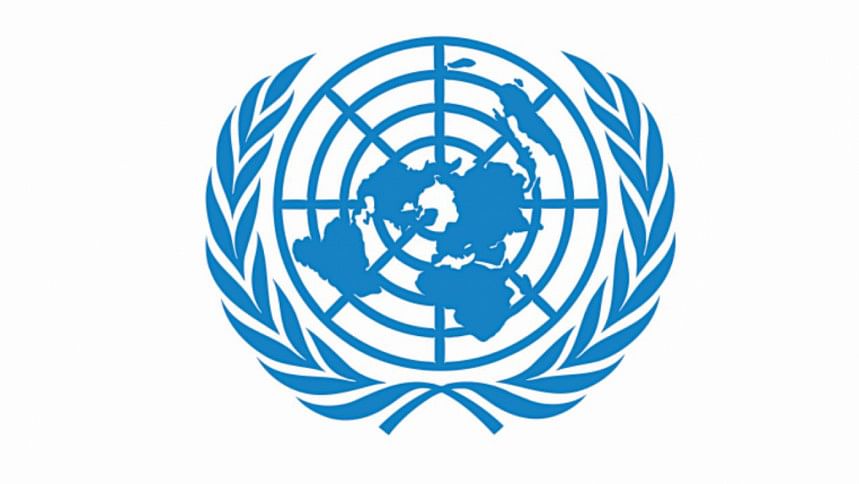
The UN Independent International Fact-Finding Mission on Myanmar (FFM) has urged the international community to cut off all financial and other support to Myanmar’s military.
It said Myanmar’s commanders need to be isolated and brought before a credible court to answer charges of war crimes, crimes against humanity and genocide.
In a statement in Geneva yesterday, FFM Chairperson Marzuki Darusman said the measures were needed because Myanmar has not done enough to resolve the nation’s conflicts and protect human rights, including those of over a million ethnic Rohingya civilians who have been forced into exile.
“There has been no movement toward a resolution of the crisis,” Darusman said at the conclusion of a 10-day visit to Bangladesh, Malaysia, Thailand and Indonesia. A FFM expert team visited the region since May 3.
During their visit, the FFM experts met government officials, UN agencies, regional actors, humanitarian workers, and representatives from Chin, Kachin, Shan and Rakhine communities.
“The situation is at a total standstill,” said Darusman.
Having faced military crackdown in Myanmar’s Rakhine State, around 750,000 Rohingyas fled to Bangladesh since August 2017 and joined some 300,000, who had faced earlier waves of violence since 1980s.
Myanmar has yet to create conducive conditions for return of the Rohingyas, though it signed a bilateral deal with Bangladesh and a tripartite deal with the UN refugee agency and UNDP on repatriating them.
The FFM, formed by the UN Human Rights Council in March 2017, submitted a report to the council in September last year where it documented how Myanmar’s military brutally and systemically violated the human rights of ethnic minorities throughout the country.
Following the violence, Myanmar authorities have levelled empty Rohingya villages with bulldozers, effectively destroying criminal evidence, while making no substantive progress in resolving the ethnic animosities that have helped fuel the crisis.
Both military and civilian sides of Myanmar’s government persistently deny the facts and disclaim any responsibility for crimes under international law.
The FFM report also condemned ethnic armed organisations for violating international humanitarian law and committing human rights abuses.
Darusman said operations conducted by Myanmar security forces in Rakhine State in 2017, 2012 and 2016 were not isolated incidents, rather they were the result of structural problems fuelled by the absence of a political and legal system that is willing to accommodate diversity.
He said Myanmar’s government should focus on the real betterment of the remaining Rohingya community in Myanmar where many live in fear.
FFM expert member Radhika Coomaraswamy said, “The repatriation of refugees remains remote unless and until the Myanmar government takes concrete measures to provide conditions that are conducive for voluntary, safe, dignified, and sustainable return, including full and equal inclusion in Myanmar society.”
Another expert member Christopher Sidoti emphasised, however, that the FFM “has seen no evidence that the Myanmar government is acting in good faith to resolve the crisis or facilitate the safe return of refugees. The situation demands an increase in international pressure.”
“Due to the gravity of the past and continuing violations, attention must be given to the political, economic and financial ties of the Myanmar military -- to identify who and what should be targeted so we can cut off the money supply as a means of increasing the pressure and reducing the violence,” Sidoti said.
The crisis has been exacerbated by new fighting between the Arakan Army and security forces in Rakhine and Chin States, which has displaced another 30,000 people, said the FFM.
Humanitarian agencies have extremely limited or no access to the affected communities in Rakhine and Chin States. The FFM continues to receive allegations of human rights violations and abuses being committed there.
In Cox’s Bazar, the FFM experts also visited the Bangladesh side of a small, desolate strip of land at Konarpara on the Myanmar-Bangladesh border where around 4,000 displaced Rohingyas remain stranded.
Due to the restrictions that Myanmar places on humanitarian actors, the people on the Myanmar side of the border face a particularly desperate situation.
Myanmar must take confidence-building measures, including lifting restrictions on freedom of movement and humanitarian access, providing livelihood opportunities and ensuring safety, to allow these 4,000 Rohingyas to return to their original villages, added the FFM.
The FFM will present its final report on the experts’ visit to the UN Human Rights Council in September this year.
Myanmar military spokesman Major General Tun Tun Nyi said the military would investigate allegations backed by evidence but the fact-finding mission had levelled false accusations at troops, reports Reuters.
“Our country is an independent country, so we don’t accept our matters being interfered with,” he told Reuters by telephone.
The military was cooperating with a government-appointed panel on alleged abuses in Rakhine, Nyi said. Human rights campaigners say it lacks credibility.

 For all latest news, follow The Daily Star's Google News channel.
For all latest news, follow The Daily Star's Google News channel. 

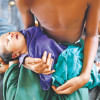
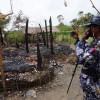
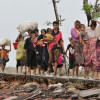
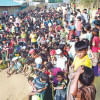
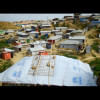


Comments